Indianz.Com > News > Underscore.News: Young Native runner honors family legacy
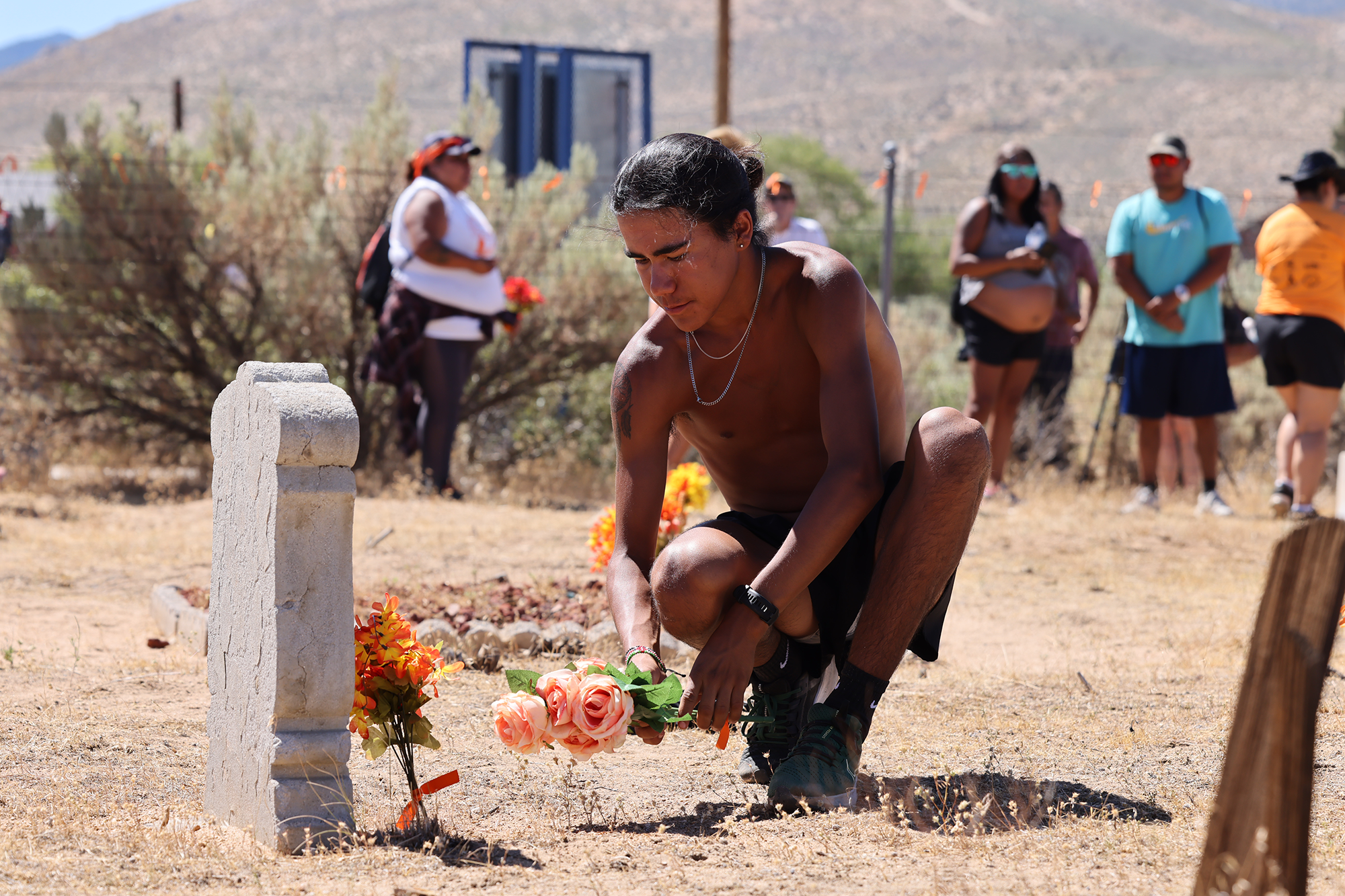
Running Down a Dream
Ku Stevens’ great-grandfather escaped an Indian boarding school, repeatedly, by running 50 miles through the desert to get home. Decades later, Ku runs to honor that legacy, and his speed has earned him a spot at his dream school.
Thursday, November 3, 2022
Underscore News/Report for America Corps Member
This story originally appeared on Underscore News.
Gravel crunches underfoot as Ku Stevens glides across the Nevada desert. The muted brown tones of sagebrush-covered hills behind his family’s home turn gold, illuminated by the rising sun. Ku runs the same trail his great-grandfather did as a child, for a different reason. His great-grandfather ran to survive. Ku runs to remember.
Kutoven “Ku” Stevens, an 18-year-old Yerington Paiute tribal citizen, has always been told his legs would take him places. Running is in his DNA. At the age of 8, Ku’s great-grandfather, Frank “Togo” Quinn, used his own legs to escape the Stewart Indian School in Carson City, Nevada. The young boy ran 50 miles through the Nevada desert, finding the way back to the Yerington Paiute Reservation by memory alone.
Quinn ran that journey on three separate occasions before government agents gave up and let him stay home. Had he not run away when he did, Ku might not be here.
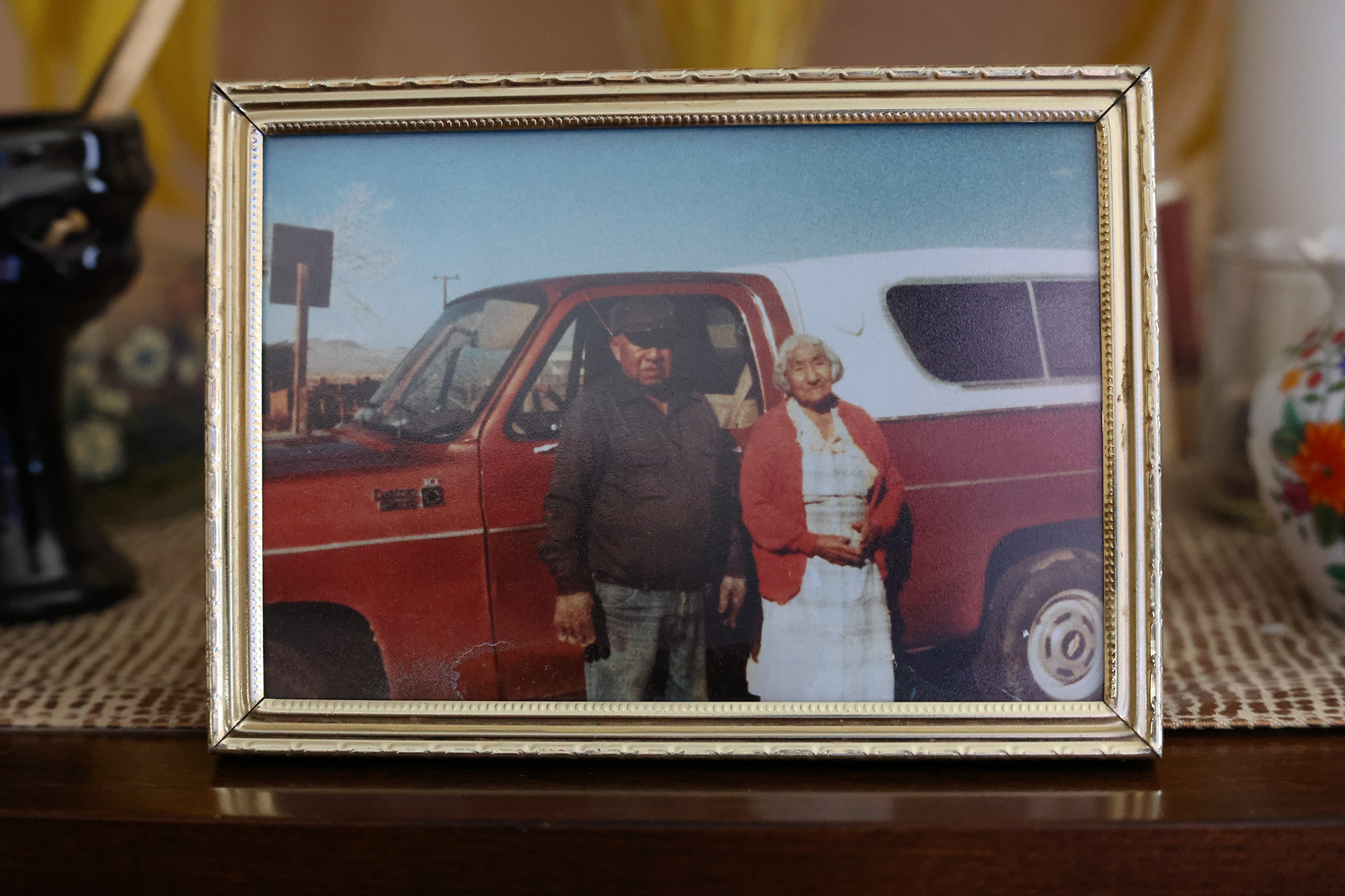
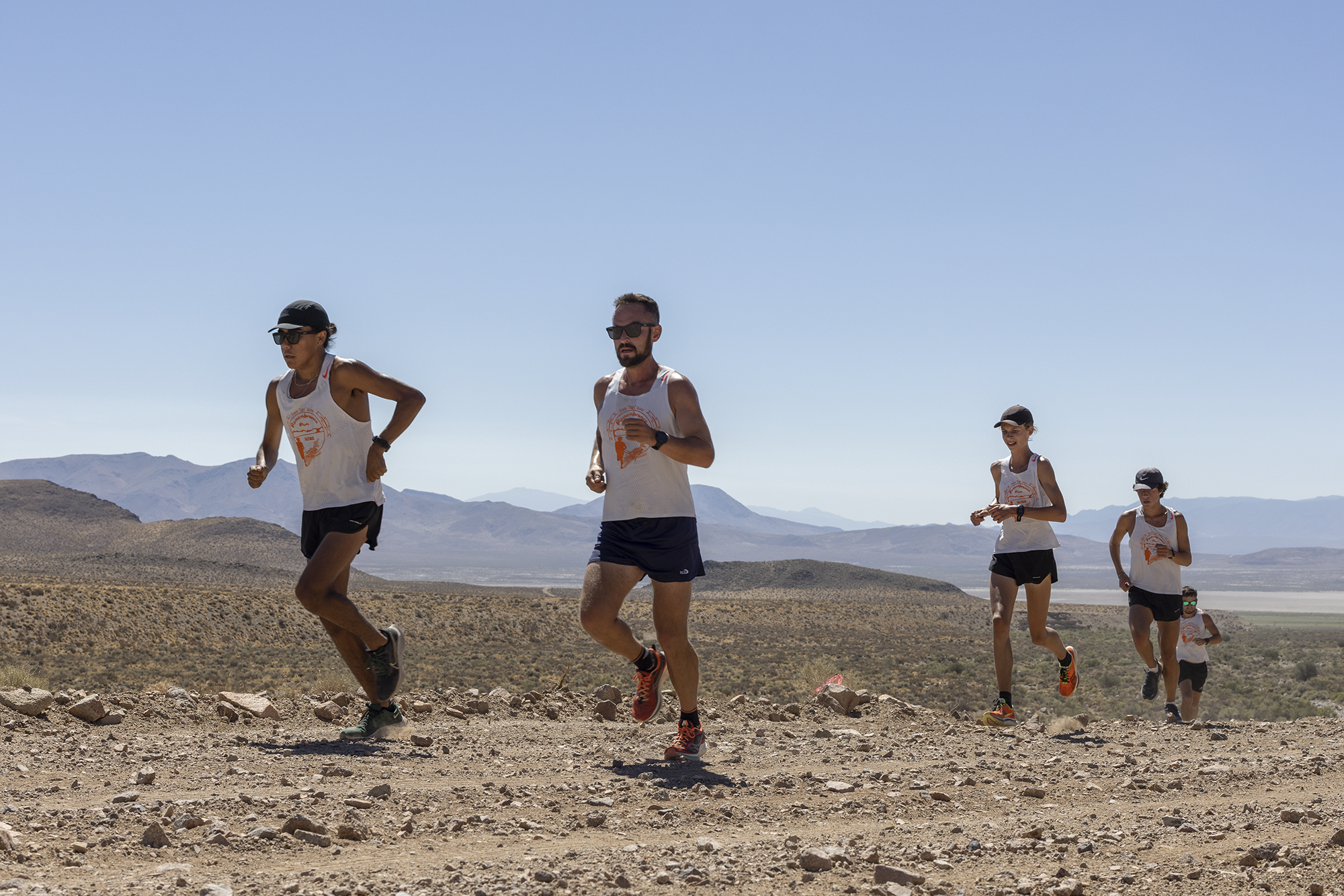
Raising a champion
Ku grew up on the Yerington Colony, at the edge of the rural farming town of Yerington, Nevada. His father, Delmar Stevens, and mother, Misty Stevens, met while working for the Yerington Paiute Tribe.
His mother says she was surprised to find out she was pregnant with Ku, because she thought she was done having children. She believes having Ku later in life allowed the family to meet the needs of a budding champion.
“I think if we had Ku when we were younger, we wouldn’t have been ready to guide his little soul to do the things that it needs to do,” she said.
Ku’s father recalls running with his son in his stroller. The toddler would climb out and run alongside him. Seeing the boy’s enthusiasm for running, the couple decided to enter their son into his first half-mile fun run at the age of 4. Stevens says Ku sprinted the whole way. That was the day they watched their son win his first medal.
“He’s a competitor,” Delmar Stevens said. “Ku doesn’t like to be that guy that comes in second.”
When he was just 8 years old, Ku won his first 5k. He beat everyone who entered, including the adults.
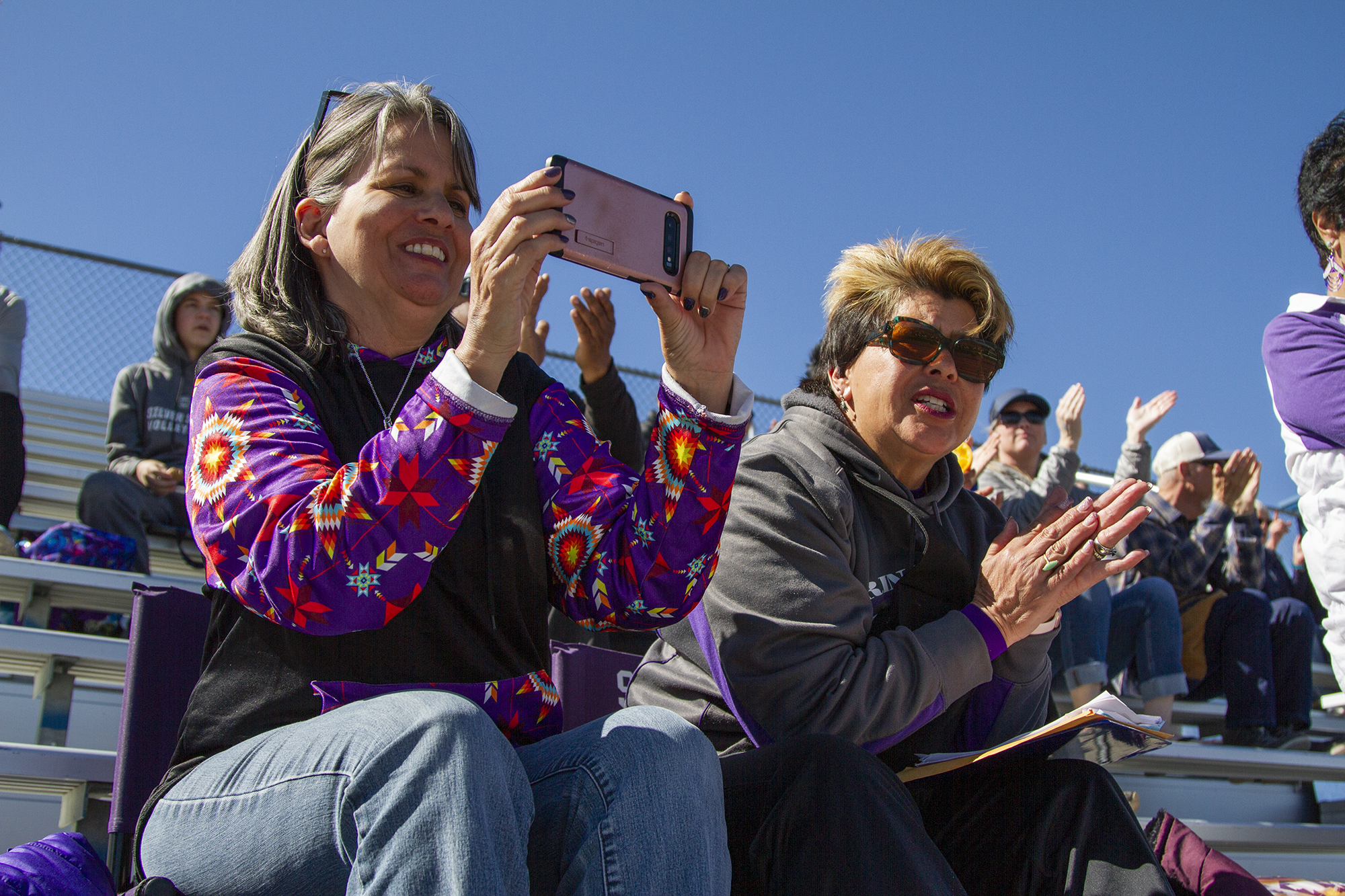
Overcoming obstacles
Living in a small town, Ku didn’t have access to the running coaches available at larger schools. Instead, the cooking teacher coached cross country. English and P.E. teachers coached track.
“None of them specifically focused on running,” Ku said. “It was always kind of just me taking whatever workouts they gave me and just multiplying it, or just trying a lot harder than what they told me to do.”
Even so, he kept winning local races and adding to his medal collection. He began to think about where his legs could take him.
In eighth grade, Ku found the coach he had been looking for. Workout plans created by college runner and volunteer coach Phillip Cruz helped Ku improve dramatically. He broke the five-minute mile in eighth grade.
Things were looking up, until the pandemic hit. Meets were canceled and his sophomore running seasons were gone. To top it off, Cruz decided to enlist into the military.
Ku was on his own once again.
During his junior year, Ku’s school again suggested canceling the cross country season. In order to have a team, the school needed at least five teammates, plus a coach. And Ku was the only cross country runner in his entire school.
“It was challenging, because initially, the school didn’t want to have just a one-man team,” Ku’s father said. “They had no funding for it. There was no coach.”
His parents were not willing to let their son’s season dissolve. They offered to pay for whatever the school couldn’t afford. That meant transporting him to meets, paying entrance fees and coaching him themselves.
Delmar became Ku’s coach.
“His name was on the paper as my coach, but my dad doesn’t know a whole lot about running,” Ku said. “So it was just me trying to remember what workouts worked and trying to piece things together.”
All they needed was someone from the school to show up and sign him in for races. The school’s teachers agreed to help.
That year, Ku was the undefeated regional champion and earned the title of the fastest runner in Nevada.
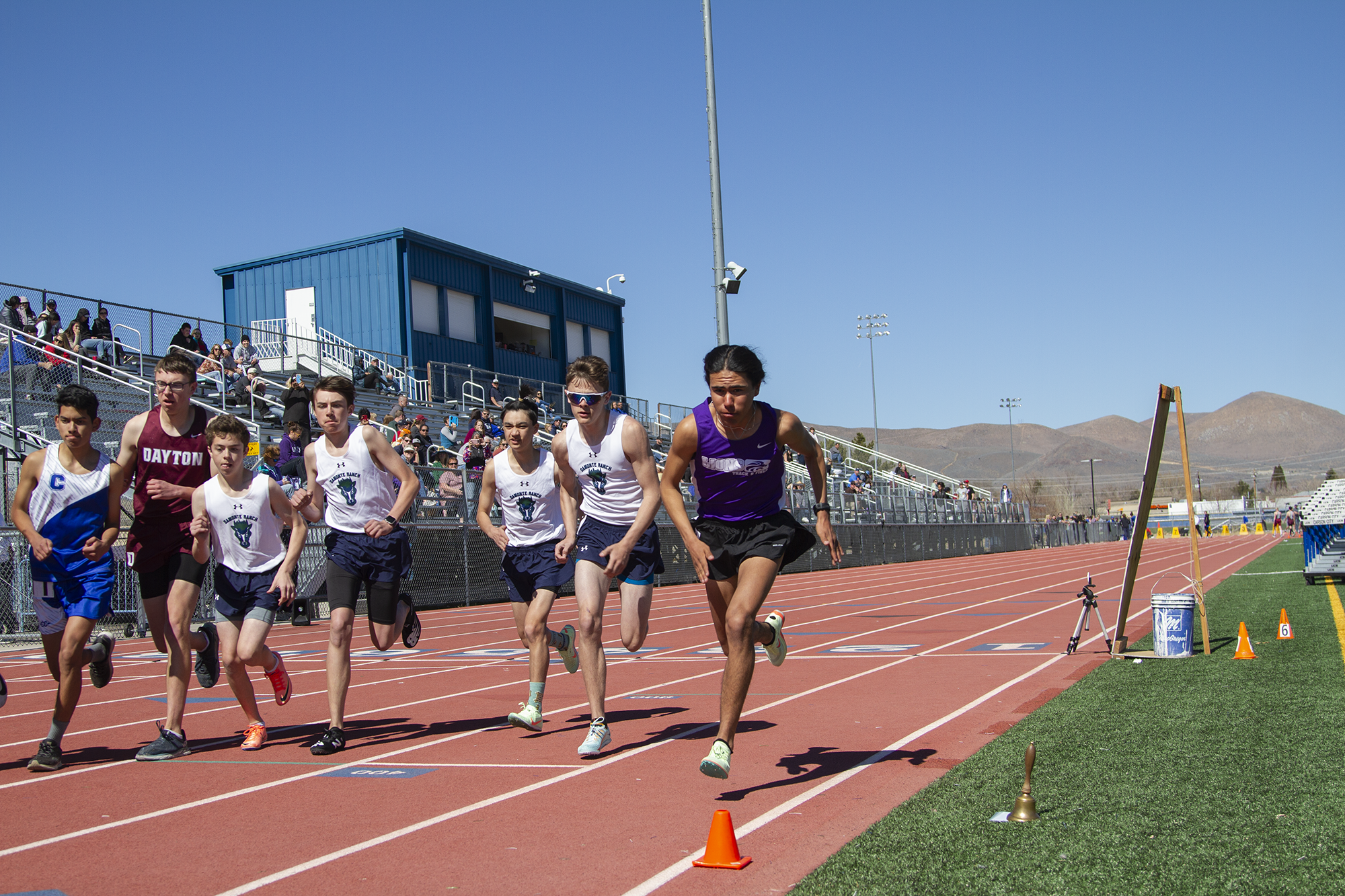
New coach, new possibilities
Ku had the school’s support and a regional title. But he was still missing something — a coach. Ku asked his parents to drive him to attend the 5A championships at Reed High School in Reno. He wanted to compare his times with the second largest division in the state.
He ran the course, zooming past Damonte Ranch High School’s head cross country coach, Lupe Cabada.
Cabada says he was surprised by this mysterious runner.
“He told me his time, and it was pretty close to the winning time in the 5A,” Cabada said. “And then I got his backstory and found out that he’s a lone ranger, and the only person on this team. I was like, ‘Wow, you’re doing all of this by yourself?’”
Impressed with Ku’s raw talent, Cabada began inviting him to runs and training sessions. To his surprise, Ku showed up filled with questions and ready to put in hard work every time.
That meant improvements in Ku’s times and endurance. His parents hired Cabada as his full-time coach. That meant Ku and his family would drive 140 miles several times per week to practice with Cabada and his team at Damonte.
Competing at national races required flying across the country, which Ku’s family could not afford. But he felt he needed to do it. Those races put runners in front of college recruiters from top programs like UO. So Ku’s tribe, the Yerington Paiute, offered to cover the travel costs.
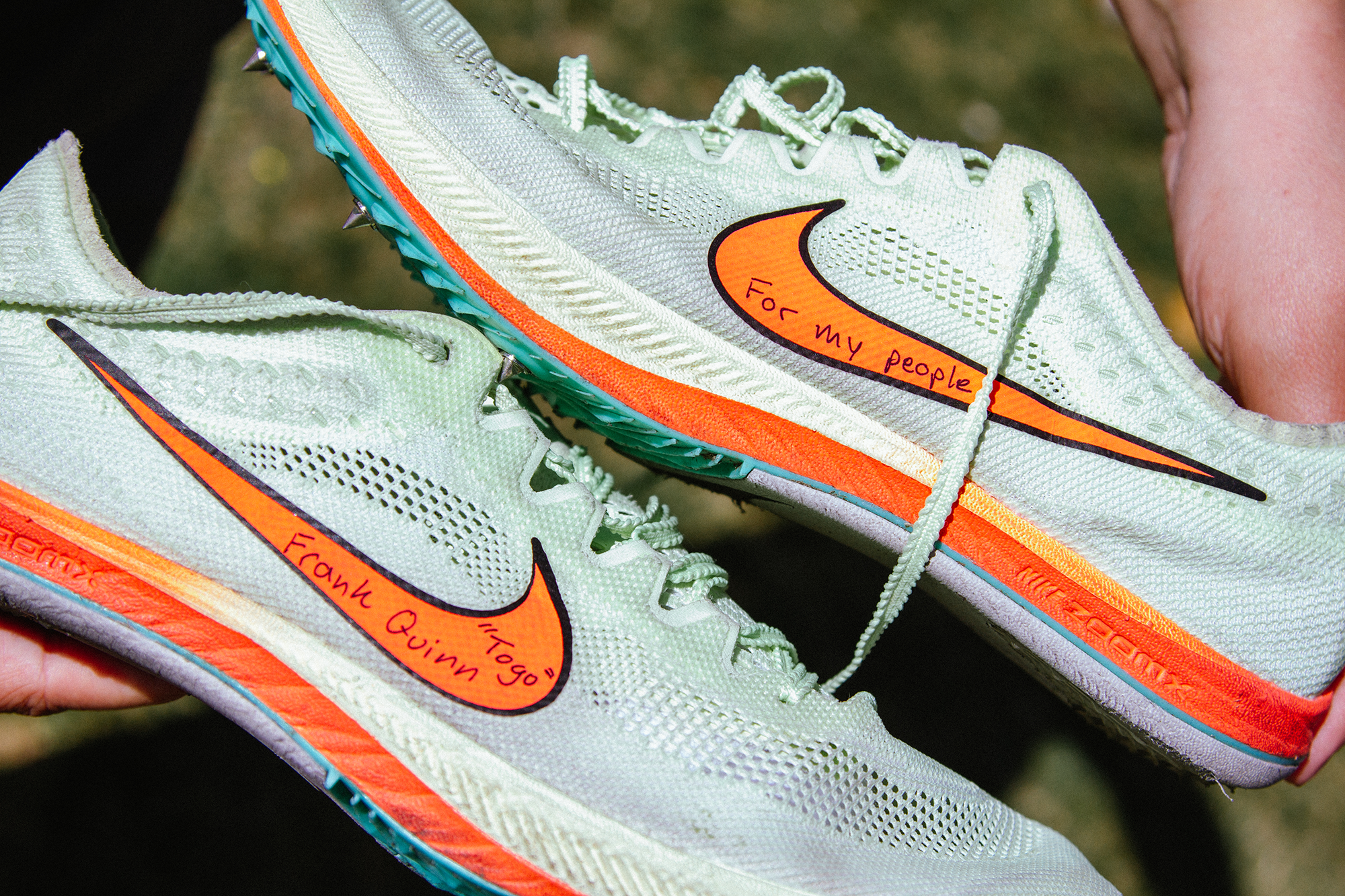
Dream starter
Ku told his mother that he wanted to be an Olympian when he was in eighth grade. It was a big dream for a young boy, especially a Native kid from the reservation. But there was one Native American athlete from the Pine Ridge Reservation who had already done so: Billy Mills.
At the 1964 Tokyo Olympics, Billy Mills, a citizen of the Oglala Lakota Nation, completed one of the greatest upsets in Olympic history by winning the 10,000-meter race. To this day, Mills is the only American to win gold in this event.
Orphaned at 12, Mills took up running while attending Haskell Indian Nations University. After winning the 1956 KSHSAA Class B State Championship in cross country, he attended the University of Kansas on an athletic scholarship. He earned numerous titles in college, including becoming a three-time NCAA All-America cross-country runner. After college, Mills enlisted in the U.S. Marine Corps, serving as first lieutenant before qualifying for the 1964 Olympic Games in the 10,000 meters and marathon.
Due to health issues, Mills made the heartbreaking decision to hang up his cleats and leave the track. He then found his true calling: helping Indigneous peoples achieve their dreams. He made it a priority to give back to his community and create a better future for Indigneous youth, especially those in his home community on the Pine Ridge Reservation in South Dakota.
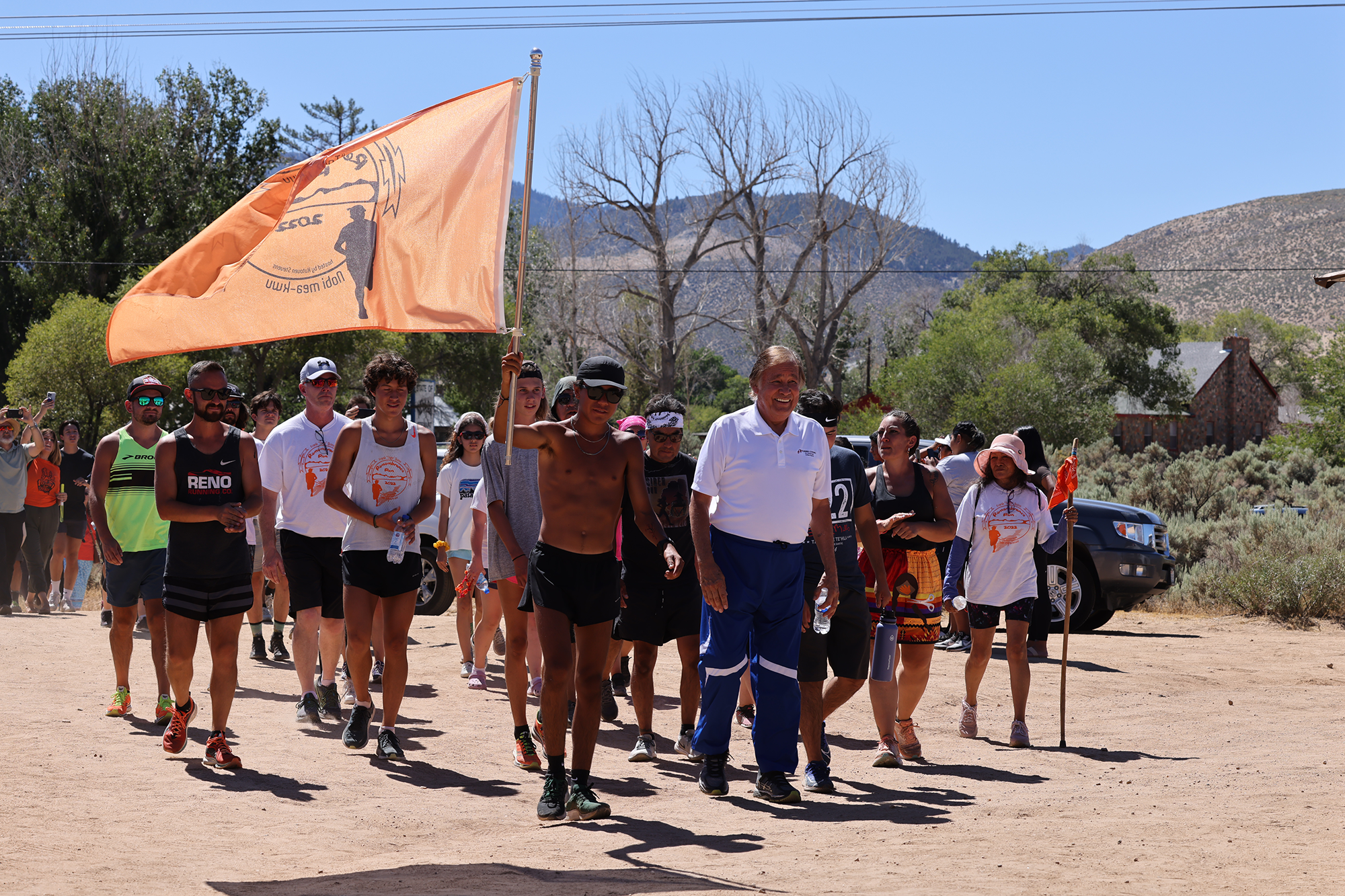
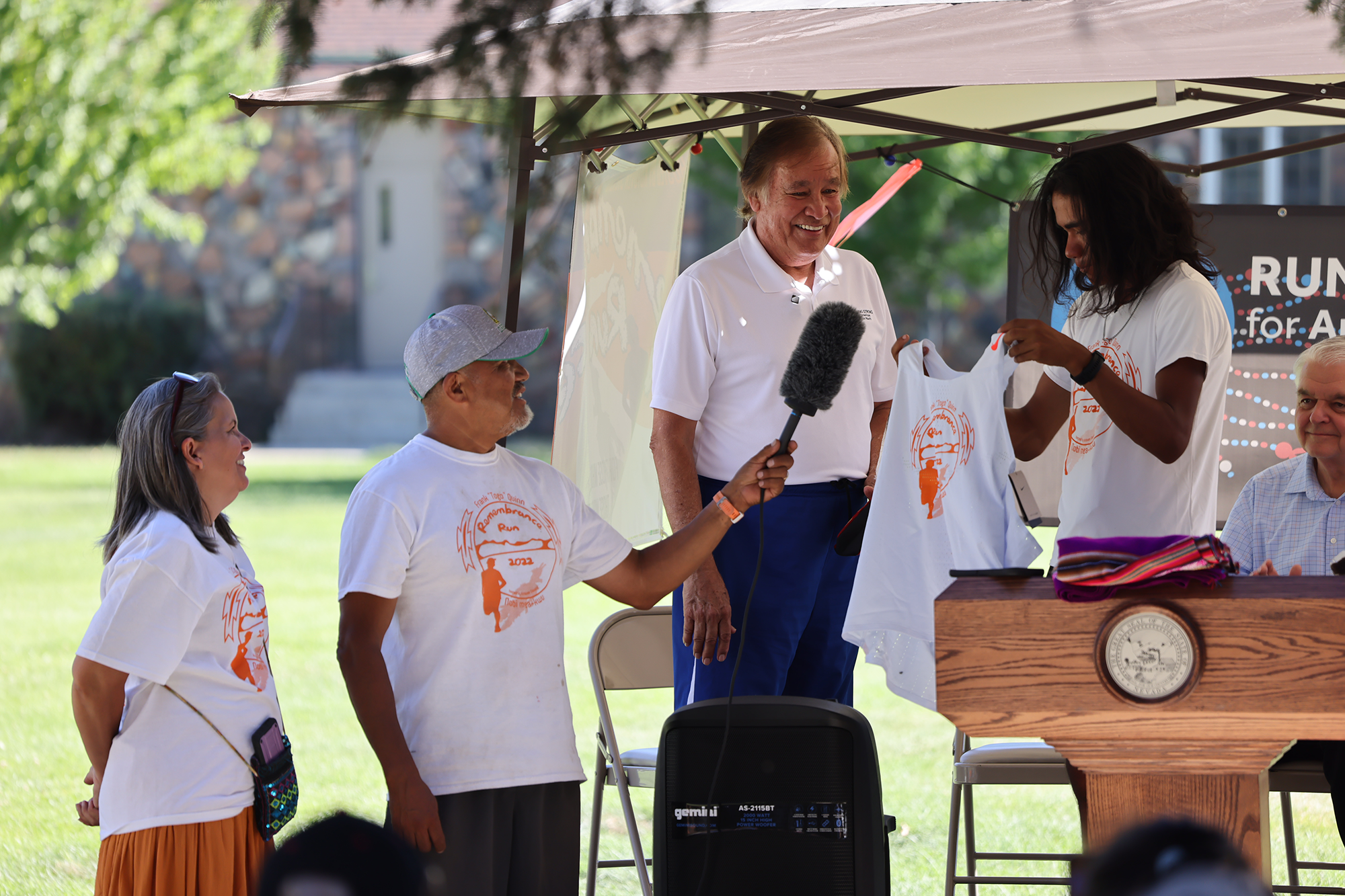
Running to his dream school
As Ku’s senior year of high school was nearing its end, other students announced where they would attend college in the fall. Ku waited patiently for an offer from his dream school.
He had a 3.93 GPA and two national gold medals, held local and state records, and enjoyed the support of Billy Mills and Indian Country in general.
He received numerous offers to attend other schools, some with full ride scholarships, but if they weren’t Oregon he didn’t even look at them. By the time his senior cross country season ended, his mother said she was getting a little worried.
“What if U of O doesn’t make an offer,” she said to her son. “Where else would you want to go? And he’s like, ‘No, I’m going to U of O.’”
In March, they received an invitation to take a tour of the University of Oregon campus. They made the nearly nine-hour drive to Eugene from the Yerington Colony.
By the end of the tour, his mother felt as though it was just a regular tour and not the one they hoped for. Then Ben Thomas, the school’s associate head coach, invited them up to his office. Inside was a table covered with championship rings.
Thomas told them he thought Ku was a good fit for the team.
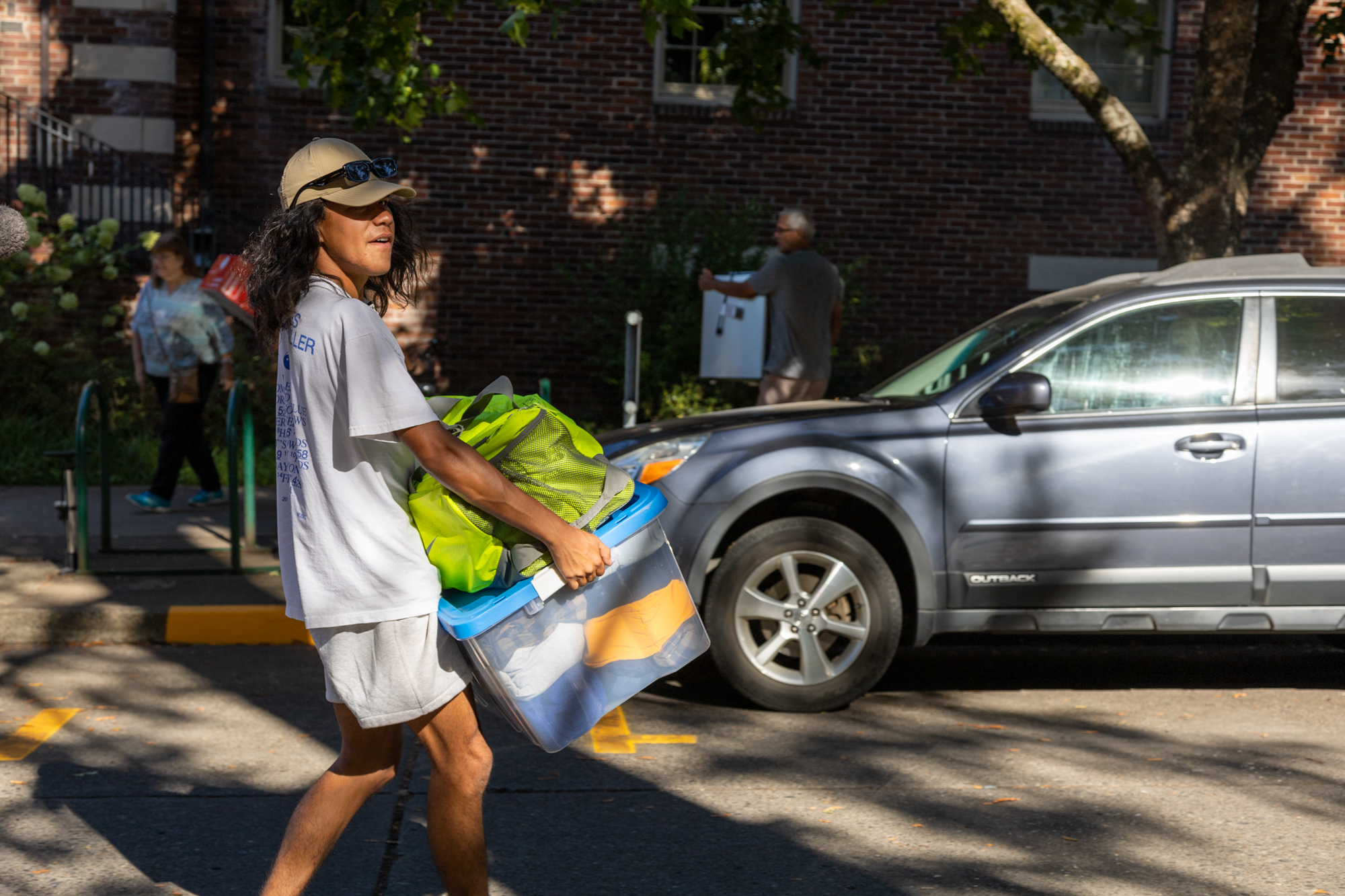
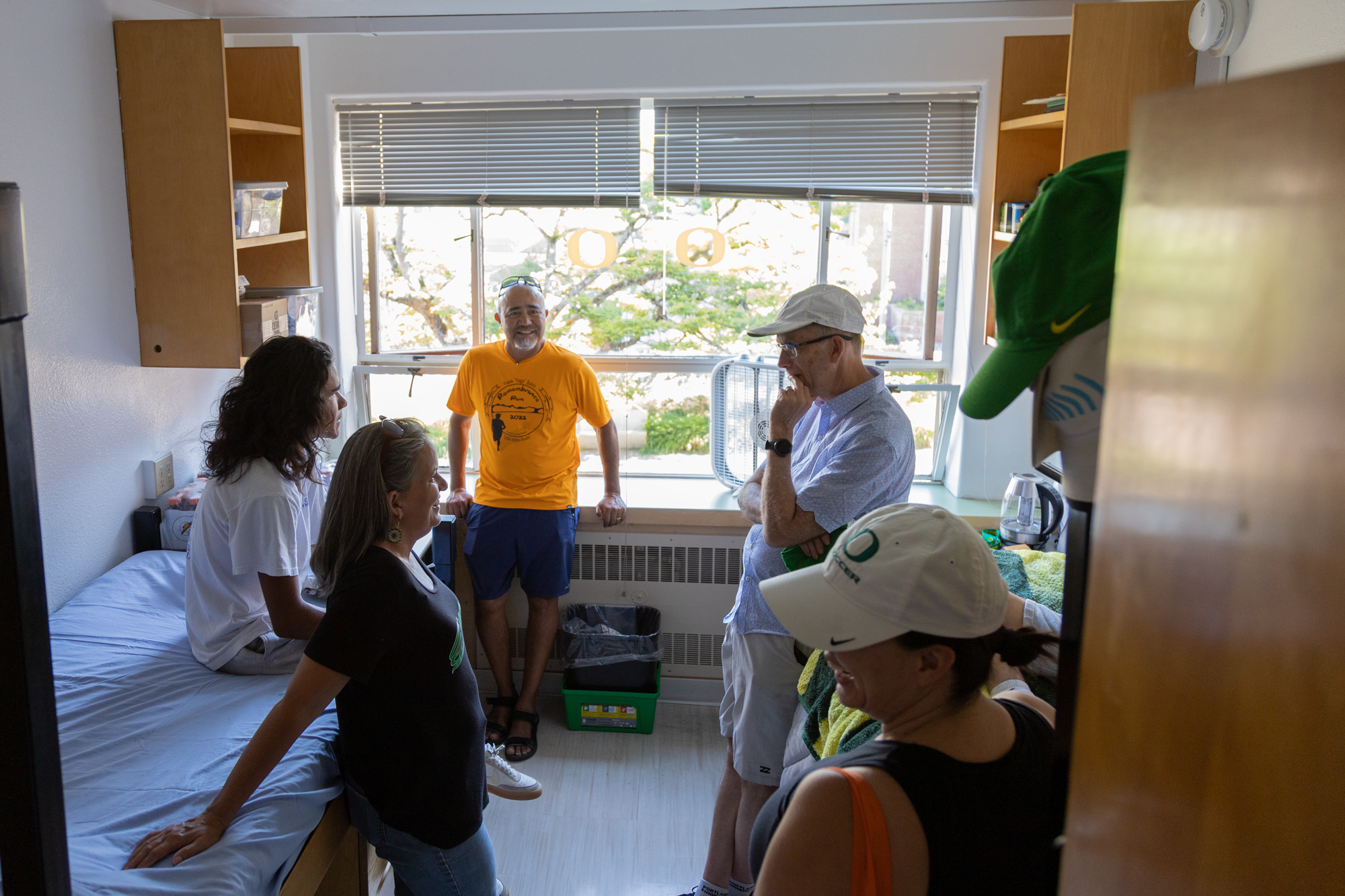
Finally a Duck
On Sunday, August 28, Ku’s parents once again drove him to Eugene. This time, he was moving in.
The family’s Toyota Tundra, with “NDNRUNNER” license plates, pulled up to the dorms next to Hayward Field. Accompanied by the Remaining Native film crew, Ku and his parents carried his belongings up to his uncomfortably warm third-floor dorm room.
They looked out his window at the track Ku has dreamed of for nearly half his life. Below, runners passed in opposite directions. “Track Town” signs and UO logo stickers were plastered on windows and the sides of brick buildings.
There was an extended moment of reflection. Then Ku bounded away with his teammates. He was on his way.
Jarrette Werk is an Indigenous affairs reporter and photographer for Underscore News and a Report for America (RFA) corps member. His work is made possible by a partnership between Underscore News and RFA, a journalism service project founded by the nonprofit GroundTruth Project. Community support is crucial to funding the Underscore News/RFA partnership. To support this partnership and Jarrette’s important work, please make a donation here.
This story originally appeared on Underscore.news. Underscore is a nonprofit collaborative reporting team in Portland focused on investigative reporting and Indian Country coverage. We are supported by foundations, corporate sponsors and donor contributions. Follow Underscore on Facebook and Twitter.
Search
Filed Under
Tags
More Headlines
Native America Calling: Tribes vie for better access to traditional plants
Senate committee schedules confirmation hearing for Interior nominee
Fact Sheet: Department of Health and Human Services to undergo ‘dramatic restructuring’
Press Release: Department of Health and Human Services to undergo ‘dramatic restructuring’
Native America Calling: The new Social Security reality for Native elders
Montana Free Press: Hip-hop artist Foreshadow celebrates latest release
Cronkite News: Bill creates alert system for missing and murdered relatives
Bureau of Indian Affairs approves HEARTH Act regulations for Mohegan Tribe
House Subcommittee on Indian and Insular Affairs sets field hearing for self-determination anniversary
Native America Calling: Sometimes, COVID doesn’t go away
Native America Calling: The changing landscape for subsistence hunting and fishing
Press Release: AIHEC ‘deeply concerned’ about closure of Department of Education
Press Release: Oklahoma Indian Gaming Association weighs in on sports betting legislation
Press Release: Sen. Mike Rounds (R-South Dakota) calls for commission on crime in Indian Country
Press Release: Sen. Schatz (D-Hawaii) criticizes closure of Department of Education
More Headlines
Senate committee schedules confirmation hearing for Interior nominee
Fact Sheet: Department of Health and Human Services to undergo ‘dramatic restructuring’
Press Release: Department of Health and Human Services to undergo ‘dramatic restructuring’
Native America Calling: The new Social Security reality for Native elders
Montana Free Press: Hip-hop artist Foreshadow celebrates latest release
Cronkite News: Bill creates alert system for missing and murdered relatives
Bureau of Indian Affairs approves HEARTH Act regulations for Mohegan Tribe
House Subcommittee on Indian and Insular Affairs sets field hearing for self-determination anniversary
Native America Calling: Sometimes, COVID doesn’t go away
Native America Calling: The changing landscape for subsistence hunting and fishing
Press Release: AIHEC ‘deeply concerned’ about closure of Department of Education
Press Release: Oklahoma Indian Gaming Association weighs in on sports betting legislation
Press Release: Sen. Mike Rounds (R-South Dakota) calls for commission on crime in Indian Country
Press Release: Sen. Schatz (D-Hawaii) criticizes closure of Department of Education
More Headlines